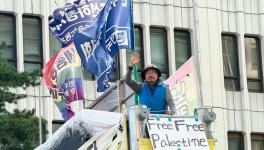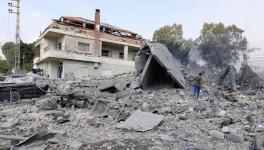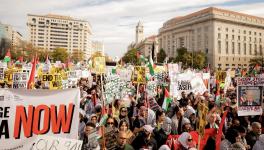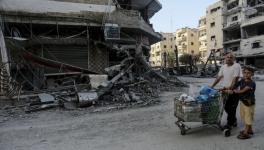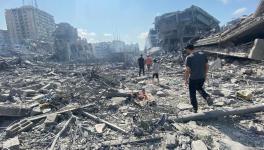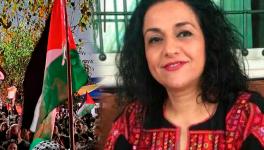West Bank: Illegal Settlements and Separation Walls are the Occupiers’ Logic of Peace
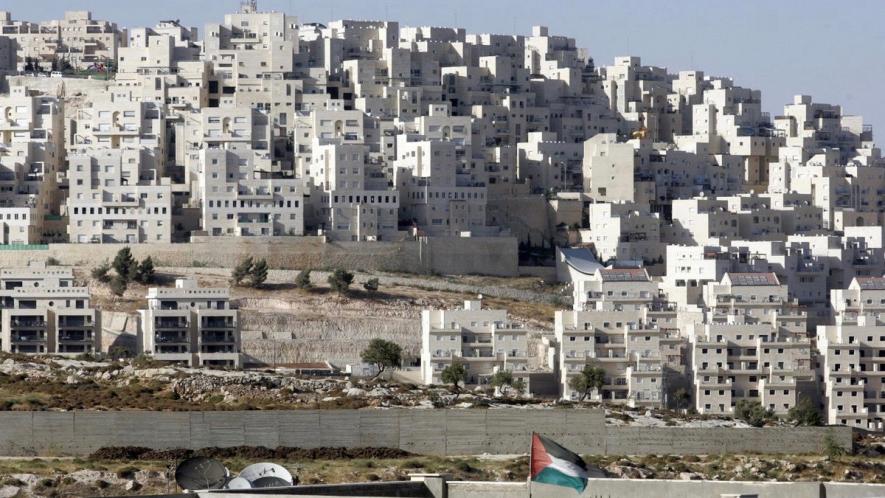
There are around 400,000 illegal Israeli settlers in the occupied West Bank. This excludes areas of the West Bank that have been annexed and made a part of the extended East Jerusalem by Israel in 1967. In the extended East Jerusalem, there are around 200,000 additional Israeli settlers. Settlers comprise around 7% of the total Israeli population today.
The Oslo Accords of 1995 had divided the West Bank into three major areas: A, B and C. Palestinians would have direct control over Area A, which is 18% of the West Bank. They would share authority with the Israelis in Area B, which is another 22% of the region. The majority of the 2.3 million Palestinians live in Areas A and B (40%) of the occupied West Bank. The rest of the land (Area C), which is around 60%, does have a few Palestinian villages but it is under direct Israeli control.
Israelis have declared around 60% of Area C, which is around 36% of the total land of the West Bank, as military area in which Palestinians are not allowed. A large part of this land (around 10% of the entire West Bank) is being used by the Israeli state to create illegal Jewish settlements. However, the total land under the control of the settlement authority is around 34%. With each passing day, more and more Israelis are settling in this part of the West Bank with full state protection, in settlements that are officially recognized by the Israeli state.
According to B’Stelem, a Jerusalem-based human rights organization, Jewish settlers have been building outposts, roads, grooves, etc. on adjacent lands, further depriving Palestinians of their lands and properties. The Israeli state formally recognizes these activities as illegal but hardly takes any steps to stop settlers from expropriating additional Palestinian lands.
All Israeli settlements in the occupied territories are illegal as per international law. Nevertheless, Israel has adopted a clever strategy of a strange combination of formal and informal measures to expand its settlement building activities inside the occupied territories.
Israeli laws restrict Palestinians living in Area C from accessing their fields, orchards, water and other natural resources. They also need permission from the Israeli state to build houses. They have to pass through numerous check posts and circuitous routes. It takes several hours for Palestinians to travel distances of a few kilometers because they are not allowed to take the same routes as settlers.
However, Israeli citizens, Jews from around the world, as well as tourists can visit settlements and the so-called military zones in Area C freely.
‘Separation’ Wall
Israel started building a separation wall that cuts across the occupied West Bank and East Jerusalem in 2000. On the pretext of security, the Palestinian areas were divided from the Jewish areas by a concrete wall twice the height of the erstwhile Berlin Wall. The 712 km-long wall eats up a large amount of Palestinian land. It directly affects more than 78 Palestinian villages and more than 250,000 people who have either been displaced or have lost access to their means of survival, including fields, businesses and jobs that have been restricted. These villages are surrounded by the wall, settlements and settlers-only roads.
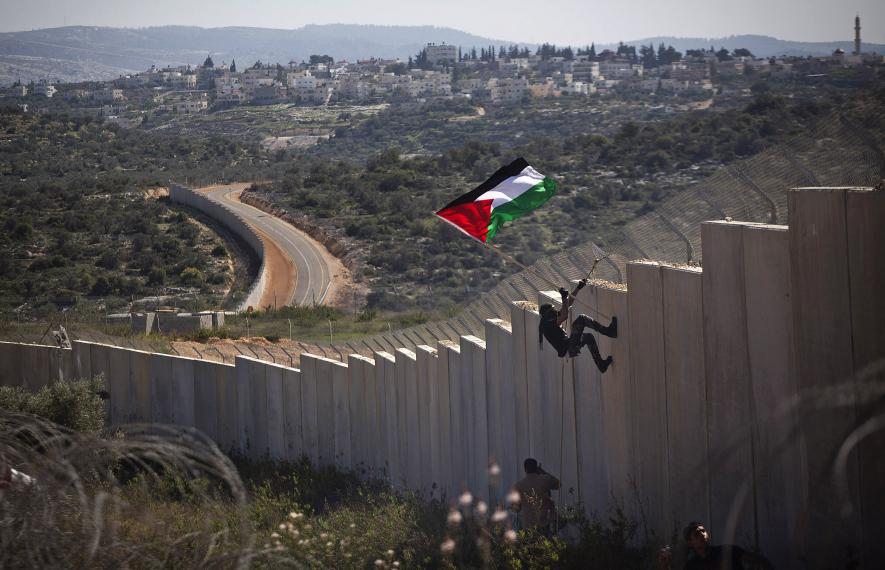
Around 11,000 Palestinians are trapped inside the “seam zones”, the area between the wall and the Green Line (the de facto border between Jordan-administered West Bank and Israel till 1967). They are completely cut off from the rest of the West Bank and cannot access Israeli territories either.
The wall, called the Occupation or Apartheid Wall by Palestinians and the international community, was deemed illegal by the International Court of Justice in 2004. Israel is an occupier and, as per the Geneva Convention, is not allowed to build any permanent structure in the occupied territories. The court called the construction of the wall a violation of the basic human rights of Palestinians. Israel, however, has ignored the judgement, as well as a subsequent resolution of the United Nations, and has continued building the wall.
Economic and Humanitarian Costs
The check posts, the separation wall, the demolition of Palestinian houses and business establishments, as well as the destruction of orchards and agricultural lands are daily occurrences for Palestinians living in the West Bank. Though it is very difficult to calculate the economic cost of all these activities, there are some partial studies available on the cost of delays caused by the check posts on the overall Palestinian economy. According to a study published this year by the Applied Research Institute in Jerusalem, Palestinians loose around USD 270 million per year due to the checkpoints spread across the West Bank and East Jerusalem. Palestinians lose around 60 million work hours per year due to delays caused by them.
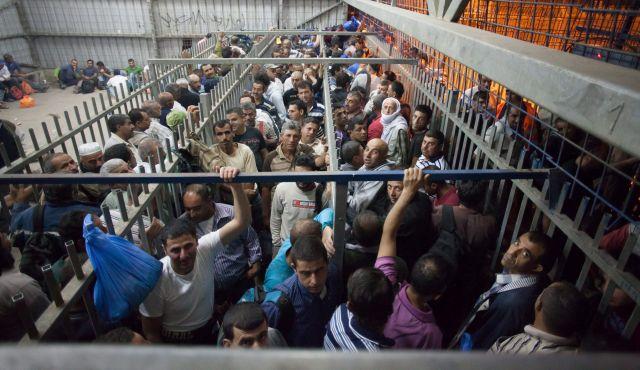
Palestinians waiting to pass through checkpoint. Photo: Mondoweiss
Palestinians living in the West Bank have restricted entry into East Jerusalem, which has been the traditional job market for a large number of rural Palestinians. The alternate routes that they are forced to take due to the separation wall leads to additional fuel costs of USD 135 million. This results in the overall loss to go beyond USD 400 million. For a small economy of around USD 10 billion, this is a huge loss.
Poverty is a central issue across the Palestinian territories and many are dependent on aid provided by different regional and global players. The main reason behind this is that the occupation prevents Palestinians from using their resources and exporting. The settlements, however, are allowed to export their production. Additionally, a large number of these settlements use scenic locations to sell themselves as tourist destinations. Whereas a person visiting the Palestinian areas needs special permits that are hard to acquire.
Global travel agencies such as Airbnb promote cafes, rental apartments, and other locations from the Israeli settlements in the occupied West Bank as tourist destinations. They thus contribute to the expansion, maintenance and normalization of the illegal settlements.
Certain private corporate houses are also “developing townships” inside the occupied territories. The government spends more on the maintenance of these settlements than it spends on the maintenance of colonies inside Israel.
When asked about corporate involvement in settlement projects, World Jewish Congress’ vice-president has only words of praise. According to him, these corporate businesses strive to bridge the division and build peace through global tourism and interaction. The irony and strangeness of this logic is never acknowledged by Israeli officials.
Tourist businesses around famous natural and archaeological sites are dominated by the settlers. Palestinians are usually not allowed to carry any business activity near the Dead Sea or other tourist sites. The Israeli state has taken over most of the natural locations and archaeological sites and converted them into national parks or Jewish history sites in complete violation of all legal and conventional norms.
Meanwhile, Palestinians face demolition of their villages and homes. Recently, the Khan al-Ahmer village was destroyed to build Jewish settlements.
The settlements are built at prime locations full of amenities. The waste generated by settlers is much higher than that generated by the local population and most of it is dumped inside the West Bank. Water resources are controlled and used in a discriminatory way, giving rise to the term ‘Water Apartheid’. Israel has shifted a large part of the polluting industries to the occupied territories in order to avoid pollution in the mainland of Israel.
Violation of International Law
As per article 49 of the fourth Geneva Convention, “the occupying power shall not deport or transfer parts of its own civilian populations to the territories it occupies.”
The Oslo Agreement of 1995 did not decide the final status of the settlements. Due to its complexity, it was left, along with the status of East Jerusalem, Palestinian Refugees and borders, to be decided during the final status negotiations as and when they happen.
Nevertheless, Israel has started treating the West Bank as its own territory even though there is no formal declaration of annexation, unlike East Jerusalem. Therefore, its attempts to govern the territory with laws passed in its own parliament are in complete violation of international laws. Between 2015 and 2019, there were seven such laws passed by the Knesset. Apart from being illegal, the laws are also discriminatory. Most of these laws are used to suppress popular Palestinian movements for basic rights.
Defying all concerns raised by different groups and countries that consider the settlements illegal, Israeli prime minister Benjamin Netanyahu promised the Israeli citizens that he would annex the settlements in the West Bank while addressing a public meeting during elections in April. The United States, which has historically supported a two-state solution and had at least on paper opposed the settlements, has recently started shifting its position under Donald Trump. The US ambassador to Israel, David Freedman, has publicly acknowledged Israel’s ‘right’ to annex some parts of the West Bank.
On July 10, on the occasion was the 40th anniversary of the “Samaria regional council” in the West Bank, Netanyahu addressed settlers in the Revava settlement of the occupied West Bank. In his speech, he declared his five “principles” on the West Bank, according to which the occupation of the territory is permanent because it is the homeland of the people who live on it. He said that the people living on the land will not be evicted and that they have stakes in the development of the region. He assured the settlers that the recognition of Israeli right over the territory by the international community will come eventually.
Ideological settler movement
Illegal settlements in the West Bank and East Jerusalem are not a new phenomenon. The Allon Plan’s political logic of settlements in the West Bank as an attempt to buy peace with Jordan failed but it did provide an idea to subsequent Israeli administrations.
The first Israeli settlements inside of the West Bank were built by a religious movement in 1967, the “Land of Israel Movement” founded by Mosse Lavinger. The so-called movement claimed the West Bank to be the biblical land of Judea and Samaria and entered the Hebron city disguised as tourists. This provided the Israeli state a perfect excuse to build a permanent Jewish settlement in the outskirts of the city.
The Land of Israel Movement changed its name in 1975 and became Gush Emunim (the Block of the Faithful) and work for the “redemption of the land of Israel.” The Likud government of Menahem Begin with Arien Sharon as defense minister way back in 1977 encouraged the settlers. In 1979 Palestinian land near Nablus was taken by the Israeli state “for military purposes” and a permanent settlement was built for the members of Gus Emunium. Since then around 200 such settlements have been built all over the West Bank.
Most of the settlements are built at strategic locations with the objective of eating up as much Palestinian land as possible. Some of the settlements are built to deliberately divide the northern and southern parts of the West Bank.
The settler’s movement is supported financially by international groups and individuals. The Israeli state of course provides them legal and military protection apart from facilitating their establishment physically.
In the last two decades, the excavation of archaeological sites inside the Occupied territories have been used to prove the biblical roots of the land and to attract more and more Jews from all over the world. Most of these settlements and archaeological sites are built after displacing Palestinians and erasing the traces of their history.
A significant part of the displacement is initiated by the settler vigilante gangs which destroy Palestinian homes, their trees, their harvest, shooting at their houses all under the state protection. If Palestinians try to resist Israel calls it acts of terrorism and uses brutal force to repress them. In the name of security, settlers are provided with settler-only roads and unlike the Palestinians they can move in and out of main land Israel as and when they wish.
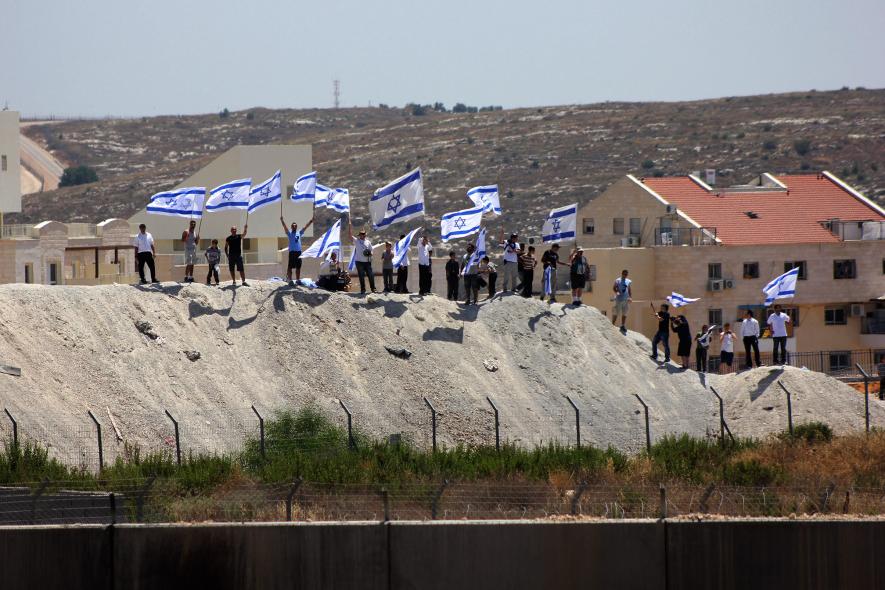
Israeli settlers from the illegal settlement of Modiâin Illit held Israeli flags and chanted slogans against Palestinian demonstrators on the other side of the Wall, during a weekly demonstration against the Israeli occupation and the Separation Wall in the West Bank village of Bilâin, June 28, 2013. (Photo by Ahmad Al-Bazz/GroundTruth)
Unlike in the past when the annexation of the West Bank was not considered a wise move by the Israeli state for various reasons including the fear of having to deal with Arabs majority inside Israel, today Netanyahu openly talks about it.
The confidence comes from the crucial support provided by the US and other countries. In last decade a large number of Arab states too have started developing closer relations with the Israeli state, abandoning the Palestinian cause.
Two-State Solution?
Amidst all this a large number of Palestinians still hope of a state of their own on the Occupied Territories of the West Bank and Gaza with East Jerusalem as its capital. A section of the international community also hopes for the same. However, the rapid growth of the settlements poses an obstacle to this. The number of settlers and settlements keeps on growing. For example, in 1985 there were 40,000 settlers, in 1996 they increased to 140,000. In 2005 it reached 210,000 and in 2015 it was around 320,000. Today, there are more than 620,000 settlers in the Occupied Territories.
There is a growing call for political, economic and cultural boycott of Israel over its settlement policy and in support of Palestinian statehood. It is not too late for the people in different parts of the world to force their states to join the Boycott, Divestment and Sanctions (BDS) movement as a step to force Israel to abandon its occupation and for the realization of the dream of a free Palestine.
Get the latest reports & analysis with people's perspective on Protests, movements & deep analytical videos, discussions of the current affairs in your Telegram app. Subscribe to NewsClick's Telegram channel & get Real-Time updates on stories, as they get published on our website.









